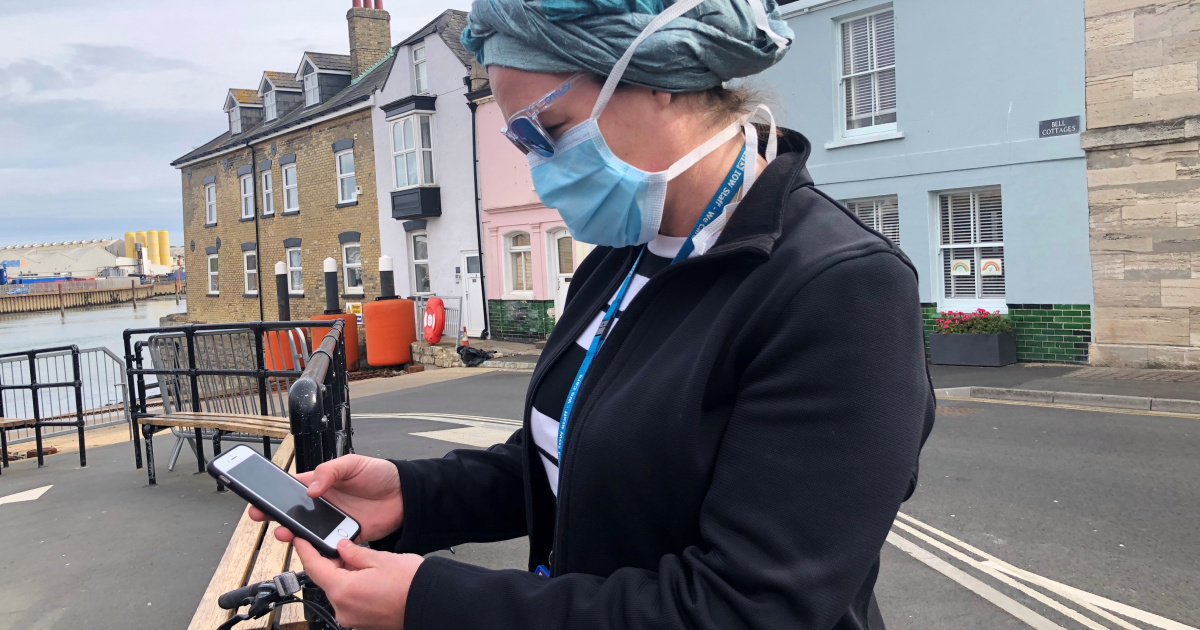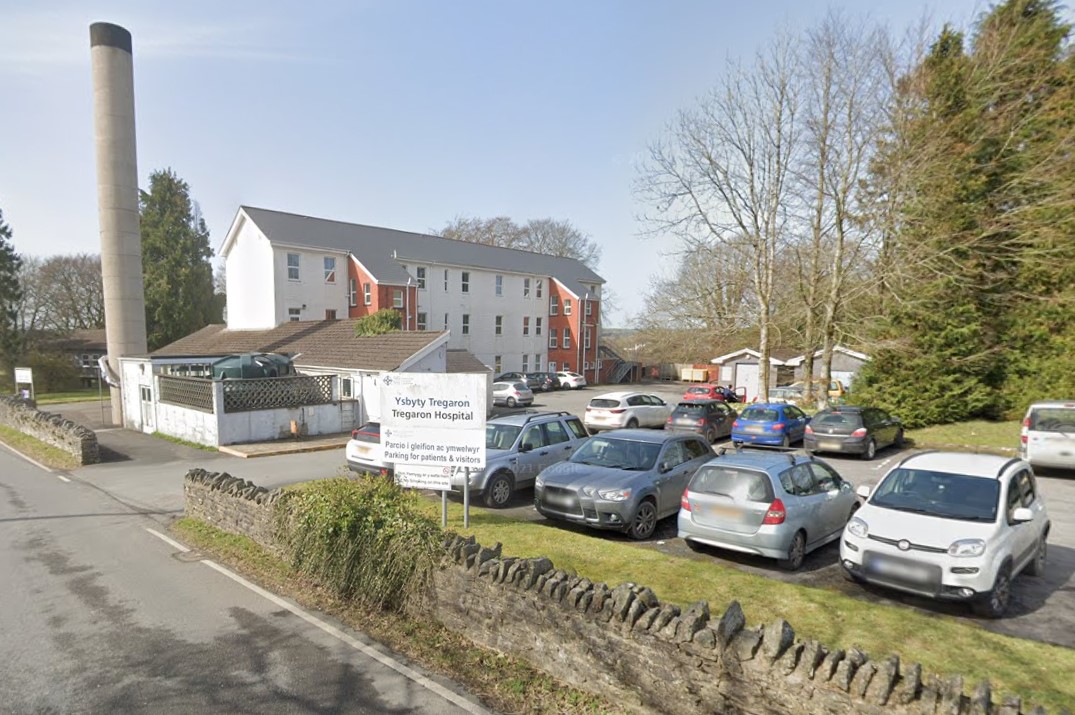Health
Welsh reminded how to stop the spread of respiratory infections

AS THE SUMMER draws to a close and schools prepare to return, the Deputy Chief Medical Officer, Dr Chris Jones, is reminding people to stay at home and avoid contact with others if they are unwell and have a high temperature.
Respiratory infections, like flu and COVID-19, can spread easily between people, with symptoms ranging from a continuous cough, fever or chills, muscle aches or pains that are not due to exercise, a sore throat, stuffy or runny nose, diarrhoea and sickness.
COVID-19 has not gone away and continues to evolve and mutate.
Deputy Chief Medical Officer Dr Chris Jones said: “Respiratory infections spread easily between people at this time of year. It is important to be aware of symptoms so you can take action to reduce the risk of spreading your infection to other people.
“We should all take sensible precautionary measures to protect ourselves and others from COVID-19 and other respiratory viruses. If you’re feeling unwell you should avoid contact with others and tell people you have recently been in contact with, so they can be aware of signs or symptoms.
“Frequent hand washing and covering your mouth and nose with a disposable tissue when coughing and sneezing are also encouraged.
“If you live with or are visiting someone with a chronic health condition or a weakened immune system, consider wearing a face mask and avoid visiting hospitals and care settings if you have symptoms.
“Vaccination remains our key defence for flu and COVID-19. So if your eligible please take up your offer of a vaccine.”
The autumn vaccination programme for Wales starts on 11 September. Vaccinations are to be rolled out to over 65s, at risk groups and those working or living with vulnerable people for flu and COVID-19.
Dr Christopher Johnson, Deputy Director of Health Protection and Head of Vaccine Preventable Disease Programme at Public Health Wales, said: “While Covid-19 may not be at the forefront of everyone’s minds, or may even be something that people would rather forget, it is important to remember that the virus is still with us.
“There are simple but important steps that everyone can take to protect themselves, their loved ones, and the NHS, especially as we see increased social mixing as schools return, and an increase in numbers.
“If you feel unwell, stay home and avoid contact with others, as you would to avoid spreading any other respiratory infection, like flu.
“When you cough or sneeze, do so into a handkerchief, and wash your hands frequently to avoid passing on germs. Special care should be taken around vulnerable or elderly people, so avoid contact with these if you are ill.
“And of course, please take up the offer of a Covid-19 and flu vaccine if you are offered them. These are the best ways to prevent the spread of the virus and protect yourself, your family, and to help the NHS.”
Health
10-mile trek raises £1,000 for stroke unit

A TEAM of 18 from CARA Wales took on a 10-mile trek and raised £1,000 for the Stroke Ward at Withybush Hospital.
The team from CARA Wales, an agricultural and rural consultancy and advice organisation, walked across the Preseli Mountains from Foel Drygan to Foel Eryr on 17th June 2023.
Mererid Sandbrook, who works for CARA Wales, said: “The walk started in Crymych and continued along the Golden Road up to Foel Eryr, the highest point of Preseli Mountain. It was a really enjoyable day.
“We were all really pleased to have raised such a great amount of money. We would like to thank everyone who donated money towards our challenge.”
They also raised £1,000 for Stroke Association.
Nicola Llewelyn, Head of Hywel Dda Health Charities, the official charity of Hywel Dda University Health Board, said: “We’d like to say a big thank you to CARA Wales for taking on the 10-mile trek in aid of the Stroke Ward.
“The support of our local communities enables us to provide services over and above what the NHS can provide in the three counties of Hywel Dda and we are extremely grateful for every donation we receive.”
Your donations are making a positive difference to the health, wellbeing and experience of NHS patients, service users and staff. For more details about the charity and how you can help support local NHS patients and staff, go to www.hywelddahealthcharities.org.uk
Health
Hywel Dda to engage on Tregaron Community Hospital beds

HYWEL DDA University Health Board is inviting members of the public to share their views about the potential of decommissioning the nine beds currently at Tregaron Community Hospital.
The proposal for a new model of care, which is part of the broader Cylch Caron project, will see the move of care from the hospital to people’s own homes enabled through a different model of support. This can only be achieved by staff working in different ways, focused on keeping people well at home, and with more available to help people in the community.
Peter Skitt, County Director Ceredigion at Hywel Dda University Health Board explains: “Members of our local community will be familiar with our vision, which includes the development of the Cylch Caron model of care that includes an integrated resource centre.”
Dr Sion James, Deputy Medical Director Primary Care and local GP for Tregaron, adds: “Tregaron Hospital has been a part of our local community for a number of years, and we need to provide our community with a range of services that meets their current and future needs.
“The Centre is an exciting and unique project that aims to offer many opportunities and benefits for people in the area. This will bring together a range of services in a central hub for the Tregaron and surrounding rural areas. The project will create an innovative rural model of community-based care to meet care, health and housing need in the area, which is fit for today and sustainable for tomorrow.”
The Cylch Caron scheme is being developed in partnership between Ceredigion County Council, Hywel Dda University Health Board and the Welsh Government. It will consist of a GP surgery, community pharmacy, outpatient clinics and community nursing and social care facilities, as well as extra care flats and integrated health and social care units.
Ceredigion County Council recently announced that they are inviting companies to tender for the design and build of the new fully-integrated health, social care and housing centre.
Peter adds: “While we develop our Cylch Caron scheme, we also need to consider our current model of care for patients at Tregaron Hospital. Despite efforts to recruit to positions, our current level of staffing is insufficient, and our staffing rotas are fragile. Our staff have voiced how challenging it is to support our patients through our current model of care at Tregaron Hospital. Our proposal is to move our staff from being hospital based and looking after the nine beds, to being community based. This will enable us to support more patients in their homes.
The Cylch Caron model of care is focused on providing more community nursing and enhanced care in people’s own homes. This would be achieved through outreach nursing and increased provision of same day urgent care. Outpatient appointments will continue to be provided from Tregaron Hospital and the building will serve as a hub for our staff until the new Cylch Caron Integrated Resource Centre is built.
Peter continues: “We know that being close to home, or in their home, is important for our patients. We want to increase the opportunity for people in Ceredigion to be able to stay well for longer, with the support of enhanced staffing in their own homes.
“At the moment, the patients in our care at Tregaron hospital live more than ten miles away from the hospital, and most are medically fit. And this has been common for a long time. Our proposal to move our staff to focus on advanced care in people’s homes provides a different way of supporting our patients. It will enable us to deliver our community care model quicker and support more people in our communities.
“Patients have consistently shared that they would prefer to be at home, or closer to home, and this tends to enable their recovery. We will work with our patients and their families, and our broader community, to understand their views during the planned period of engagement.”
The proposal to decommission the nine beds and the engagement period will be discussed at the Board meeting held on 25 July. The four-week period of engagement will launch on 1 August and run until 29 August 2024. Individuals will be able to attend online and in-person events and be able to share their views through the Health Board’s Have Your Say portal. Feedback from the engagement will be presented to the September meeting of the Health Board.
Further information on the events and how individuals can share their views will be shared at the end of July.
Health
Equipment and games for Glangwili children’s ward thanks to donations

THANKS to donations, Hywel Dda Health Charities, the official charity of Hywel Dda University Health Board, has been able to provide equipment and games worth over £300 to Cilgerran Ward at Glangwili Hospital.
The NHS charity funded TV brackets, universal remotes, Nintendo Switch cases and Nintendo games including FIFA, Chocobo and Minecraft Dungeons.
Karen Thomas, Head of Therapeutic Play, said: “We are so grateful that charitable funds have allowed us to purchase more items for Cilgerran Ward.
“The new items will help the therapeutic play team work more effectively and focus their time on the children and young people in our care.
“Being able to play while in hospital means the children and young people can continue an aspect of their normal life. Arts and crafts help as they go through treatments and procedures in hospital, minimising the effects of isolation, stress and anxiety.
“The items will help make the ward and all the areas the children attend more friendly and promote wellbeing for all.”
Nicola Llewelyn, Head of Hywel Dda Health Charities, the official charity of Hywel Dda University Health Board, said: “The support of our local communities enables us to provide services over and above what the NHS can provide in the three counties of Hywel Dda and we are extremely grateful for every donation we receive.”
For more details about the charity and how you can help support local NHS patients and staff, go to www.hywelddahealthcharities.org.uk
-

 Education5 days ago
Education5 days agoMilford Tesco worker achieves Oxford dream and lands top legal job
-

 Crime4 days ago
Crime4 days agoHaverfordwest man admits having nearly 1000 child and animal images
-

 Crime4 days ago
Crime4 days agoYouth set to appear in court over serious sexual offences
-

 Crime4 days ago
Crime4 days agoPolice investigating after man injured during altercation in cemetery
-

 Education4 days ago
Education4 days agoPupils delight in ice cream treat from Pembrokeshire’s number one van
-

 Crime4 days ago
Crime4 days agoTown centre ‘stinking of skunk’ as police strip cannabis farm
-

 Crime3 days ago
Crime3 days agoFag-butt police court summonses spark debate in Pembrokeshire
-

 News6 days ago
News6 days agoProposal to give firefighters a council tax discount to go to Cabinet































